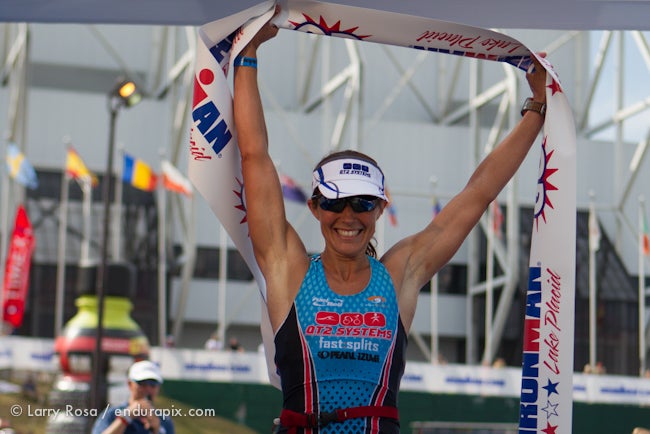Coached: Making The Transition To Professional Triathlete

Jessie Donavan won Ironman Lake Placid in 2012. Photo: Larry Rosa/Endurapix
Determine if you’re ready for the pro field with advice from Jesse Kropelnicki.
This article was originally published in the Jan/Feb 2013 issue of Inside Triathlon magazine.
Boston-based QT2 Systems head coach Jesse Kropelnicki has taken athletes, such as top-10 Kona finisher Caitlin Snow, from amateurs to successful pros. He is adamant about delaying that transition until the athlete is truly ready. One athlete he helped successfully make the jump is Jessie Donavan, who won Ironman Lake Placid and Ironman Mont-Tremblant in 2012. He says there are a few key things the QT2 coaching team did to make sure she didn’t crash and burn on her way into the pro field.
1. Act like a professional. Getting a pro license isn’t the same thing as being a professional in Kropelnicki’s eyes. He’s looking for athletes who can operate as true professionals, meaning they answer emails quickly, execute training methodically and report sessions accurately. “If you assess the people who are successful, they have that trait,” Kropelnicki says. “Jessie is one of those.”
2. Take care of the details. It’s not the training that top-level age groupers have problems with; it’s keeping up with the massages, the nutrition, the rest, etc. “Make sure restoration is commensurate with application of training load,” Kropelnicki says.
3. Don’t let mental fitness limit physical fitness. “When you’re racing as an age grouper, you’re at the front of the field and feeling like a superstar, then all of a sudden you’re a first-year pro and you’re getting dropped in the water,” Kropelnicki says. “Mentally, it can be really difficult to race like that and can lead to over-pacing and subsequent burn-up on race day.”
4. Beware of race gluttony. “First-year pros want to race a lot, and with the [Kona Pro Rankings] system in place, they feel they need to race a lot, so it’s easy to break successful cycles they had in the past as an age grouper,” he says. Plot out your season with the same type of plan that worked for you as an amateur, peaking for key events and recovering properly afterward.
RELATED – Coached: Triathlon Tips From Mark Allen